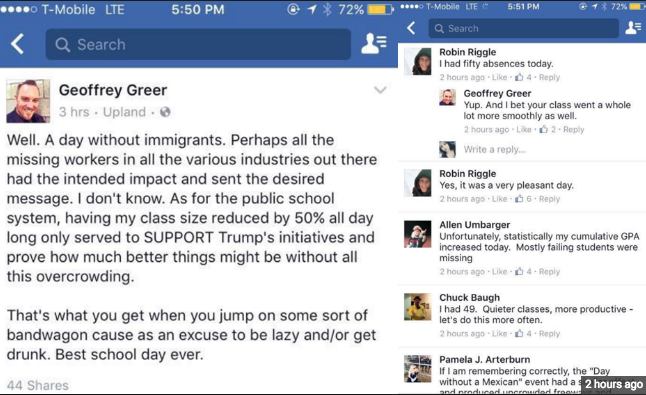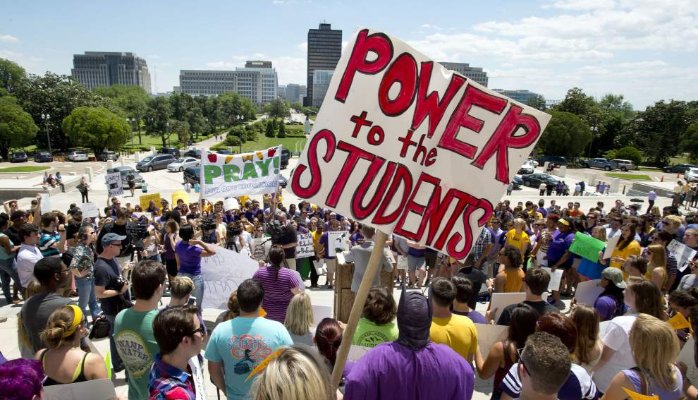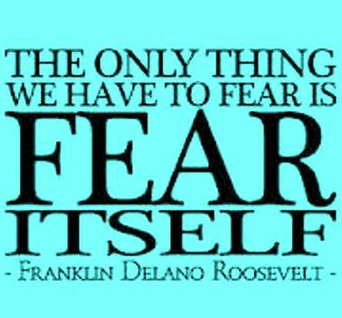Recently, a group of high school educators in Southern California were placed on administrative leave for their response, via social media, to their students participating in a ‘Day Without Immigrants’ on February 16, 2017. Their school’s students were just part of thousands of students - across the state and nation - that stayed home that day in order to demonstrate solidarity with adults in their communities who stayed home from work to demonstrate the fiscal impact immigrants and immigrant families have on our local, regional and national economies.
The Real 3 R’s (Relationships, Respect & Role Models)
Although since deleted, at least five high school teachers and one counselor, posted messages on Facebook celebrating that so many Latino students missed classes that day. These posts included comments about the students being ‘lazy’ and ‘drunk’, or that the cafeteria ‘was cleaner without them.’ (see entire story here: Teachers put on leave for 'Day Without Immigrants' social media posts and sample of posts below)
 . Naturally, it seems most educators, as well as many parents, students, and community members, could find several things wrong with what these educators did. Yes, they are being reprimanded. And yes we don’t know what their final discipline may include. But regardless of the formal results of their actions, what are the long-term repercussions and collateral damage as it relates to education?
. Naturally, it seems most educators, as well as many parents, students, and community members, could find several things wrong with what these educators did. Yes, they are being reprimanded. And yes we don’t know what their final discipline may include. But regardless of the formal results of their actions, what are the long-term repercussions and collateral damage as it relates to education?
Personally and professionally, I am outraged to share the same profession as these educators. To me, their actions represent everything that is the polar opposite of what it means to be an educator or leader of our youth. In addition to hurting those students, their school and their community, they also hurt the profession and the on-going work that caring, innovative educators are doing every day.
Here are some of the real effects of their actions as I see them:
The Real 3 R’s (Relationships, Respect & Role Models)
As we know by now, education is a relationship business built on mutual respect and understanding. Nothing empowers learning more than strong, healthy educator-student relationships. Inversely, nothing impedes learning more than strained or damaged relationships. Many of us work tirelessly to show respect to our students, to demonstrate sincere care for our students and to earn their professional trust. These are all set back each time an educator behaves like these six did. All educators need to cherish and protect our unique position as role models. Once students do not believe in us, they are in jeopardy of not believing in themselves. We are employed and deployed to inspire, not degrade. Adults, especially often educators, request that young people respect them. Well, respect is certainly a mutual thing. So, these six educators demonstrated a total lack of respect, or egregious disrespect, These educators have crossed one of the most sacred professional thresholds - ignoring the real 3 R’s. These six educators may have individually and collectively lost the connection to these students forever, as well as influenced how they interact with all of their future educators.


Walking In Our Students’ Shoes
Regardless of our students’ backgrounds, our mission should be to try to understand them, to walk in their shoes if you will. Compared to us, they may have different ethnic backgrounds, religious practices, socioeconomic circumstances, medical situations, family dynamics and more. In order to educate them, we must understand them. In order to optimize their learning, we should be working tirelessly to see things from their perspective. When we dismiss their views or their experiences, we minimize them. It’s hard to maximize learning, if you are minimizing the heart or soul. ‘The Day Without Immigrants’ would have been a perfect opportunities for us educators to find out more - more about our students, their families, their friends, their neighborhoods and their collective experiences.
Promoting Student Voice / Activism
It’s simple. We should be encouraging our students to become active politically, socially, culturally and intellectually in their communities. We don’t need to direct them to a certain cause, but rather challenge and encourage them to get involved in the causes of their choice. We may not agree with their position or their choice of how to express it. Many of us may think that missing school one day does not help any cause or affect any real change. It may or may not. Only history can tell. But that’s not the point. We should remind our students that they have a powerful voice and let them use it. We need to agree that they can and should have a position. As a former media teacher, I find student voices to be paramount in terms of lifelong learning. As a proponent of project-based learning, I see the higher level learning opportunities available when students pursue challenges and issues that they are personally affected by or indeed interested. Our democracy and economy depend on students becoming the voices and leaders of the future. These educators' social media posts should have been things like; “I’m so proud of my students today” or “I learn from my students everyday through the struggles they face.” It’s funny how adults sometimes criticize young people for not caring enough, but then often trivialize or degrade them when they care about something.

Educators Need 21st Century Skills Too
This breach in judgement from these educators demonstrated a lack of skills in several areas. One, we need to call out Social Media as a New Literacy. We not only need to teach our students, but the adults too, that what we say on social media can have tremendous impact - both positive and negative. We need to be aware of our responsibility online and how our digital footprint is formed daily with our digital behavior. Those six educators negatively branded not only themselves, but their school, their district and their community - as well as the profession in general. Additionally, if we want students to become critical thinkers, we can’t put them down when they begin to question, challenge or take a stand. We say collaboration is key and employers do as well. So when students join a cause, we need to applaud their attempt at greater and broader collaboration. Ironically, “A Day Without Immigrants,” in terms of student participation, was truly a viral thing demonstrating their ability to communicate and connect with the larger world around them. These are all skills of our new economy and 21st century classrooms. We need to teach these to our adults, as well as our students.

Perpetuating Fear
In the end, this particular event is really part of a larger social, political and cultural struggle taking place in our country. Whether it’s immigration, immigrants, racism, cultural awareness, individual rights, mutual respect or more, we need to acknowledge that that our students, like us, are part of something larger. Many of our students are afraid right now. We have families being divided and torn apart. We have students and parents across the country each and every day asking their schools for emotional and physical support. So, when these educators lashed out on social media against their students, they not only demonstrated ignorance and disrespect, but also fear. They revealed their own personal fears while also not acknowledging their students’ fears. They ultimately sent a message to their students to be silent and live in the shadows. They encouraged all of us to fear each other more instead of embracing one another more. They moved us all backwards through fear instead of forwards through acceptance.

Like I said in the beginning, I don’t know what will ultimately happen to these six educators. And maybe they will learn some real lifelong lessons from their students. If I were their principal or superintendent, I would consider many things including dismissal if it were possible. One thing that I would do for sure is have all of them spend some considerable time with their students and listen to their stories. Maybe these six educators can start a brand new movement where they embrace student voice through a social media campaign. Today, I am angry at them. I hope tomorrow that I can envision their ultimate redemption. I’m sure all of you have some ideas too.
(photos courtesy of Foter, Pixabay and Public Domain Photos)
Promoting as well as processing the best effort in educational mannerism to expose each step is necessary. Needless to say the way it has been processed every single pointed out thoughts are fundamental to all.
ReplyDeleteThis system takes advantage of a fundamental project management framework through which the project life-cycle is broken into organizing, arranging, monitoring and controlling the project.
ReplyDelete